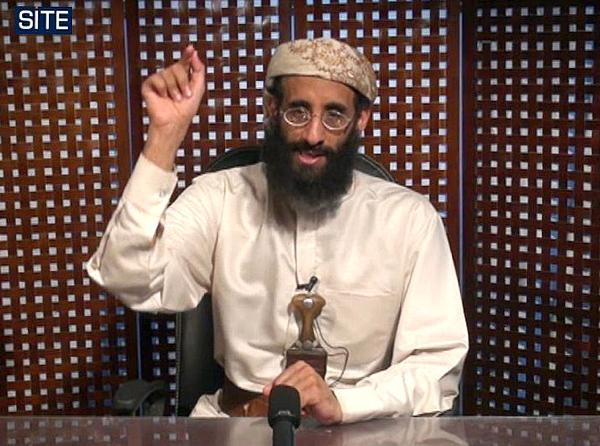Killing of al-Awlaki 'major blow' to al-Qaeda: Obama
 0 Comment(s)
0 Comment(s) Print
Print E-mail
Xinhua, October 1, 2011
E-mail
Xinhua, October 1, 2011
U.S. President Barack Obama on Friday said that the killing of radical cleric Anwar al-Awlaki is a major blow to al-Qaeda's most active operational affiliate, al- Qaeda in the Arabian Peninsula.
|
|
|
In this image from video released by SITE Intelligence Group on Nov. 8, 2010, Anwar al-Awlaki speaks in a video message posted on radical websites. (Xinhua photo) |
Obama made the remarks in the retirement ceremony of Adm. Mike Mullen, outgoing chairman of the Joint Chiefs of Staff. He said that al- Awlaki was behind several high-profile attacks on the United States, and is "directly responsible for the deaths of many Yemeni citizens."
"He directed the failed attempt to blow up an airplane on Christmas Day in 2009. He directed the failed attempt to blow up U. S. cargo planes in 2010," said Obama.
Al-Awlaki was killed earlier in southeast Yemen in an air raid, according to Yemen's Defense Ministry. He was branded as a major recruiter for al-Qaeda, and U.S. officials suspect him to have provided spiritual guidance to attackers who carried out Fort Hood shooting in Nov. 2009 and the underwear bomb attempt on a U.S. airliner the following month. Other attacks were also tied to him.
Al-Awlaki's death marks "another significant milestone in the broader effort to defeat al-Qaeda and its affiliates," noted Obama, as the cleric "repeatedly called on individuals in the United States and around the globe to kill innocent men, women and children to advance a murderous agenda."
Obama said that although the killing weakened al-Qaeda's Arabian Peninsula branch, the group remains dangerous, and the administration "will remain vigilant against any threats to the United States or our allies and partners."
The 40-year cleric was born in the U.S. state of New Mexico to Yemeni parents, and has U.S. citizenship. His killing is sure to raise questions on how far the U.S. side can go in the war against terror, as he cannot be labeled as a foreign combatant, and it is hard to justify the targeted killing of an American.






